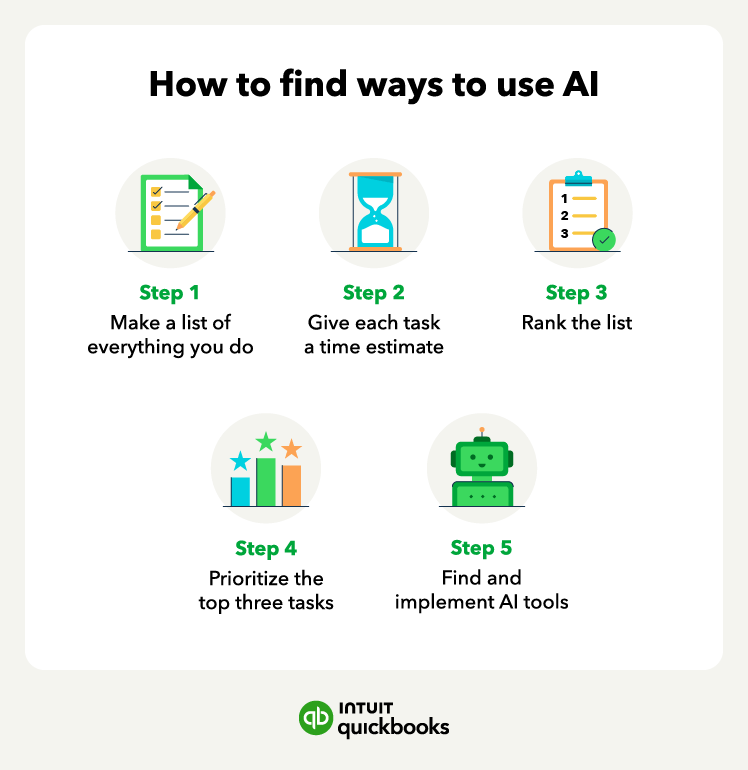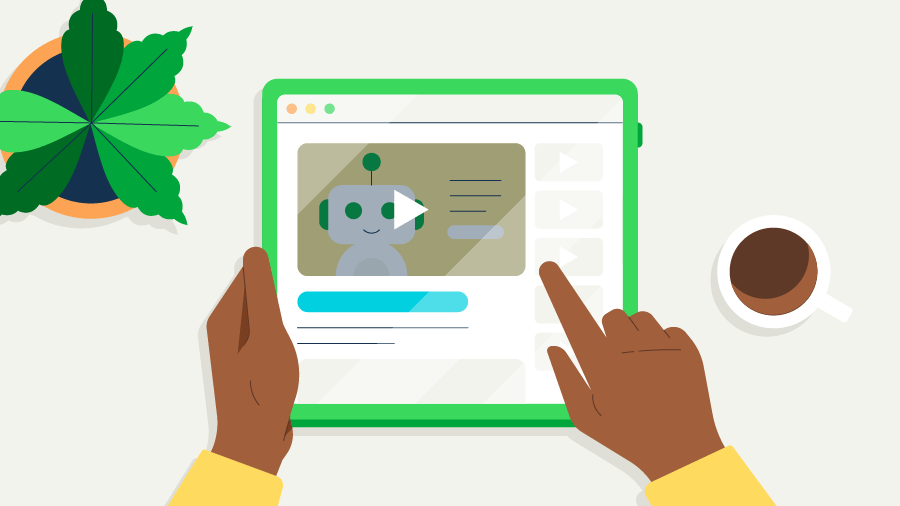If you've used a chatbot, expense auto-categorization, or voice-to-text features, you've already experienced just how convenient and efficient artificial intelligence can be. According to a QuickBooks AI Survey, 83% of small businesses already use AI at work, and 65% want to use it even more.
Artificial intelligence (AI) is technology that allows machines to quickly perform tasks with little human intervention. Some types of AI can even analyze and learn from data, recognize patterns, and make decisions. For small businesses, that means getting more done in less time, without needing a big team or budget.
A common branch of AI that many small businesses can benefit from is machine learning, which teaches programs to improve by analyzing data. In short, AI is the big idea—machine learning is one way to make it happen.
In this guide, we’ll cover how AI works, where small businesses can use it, and how to get started, step by step.
Jump to:


















